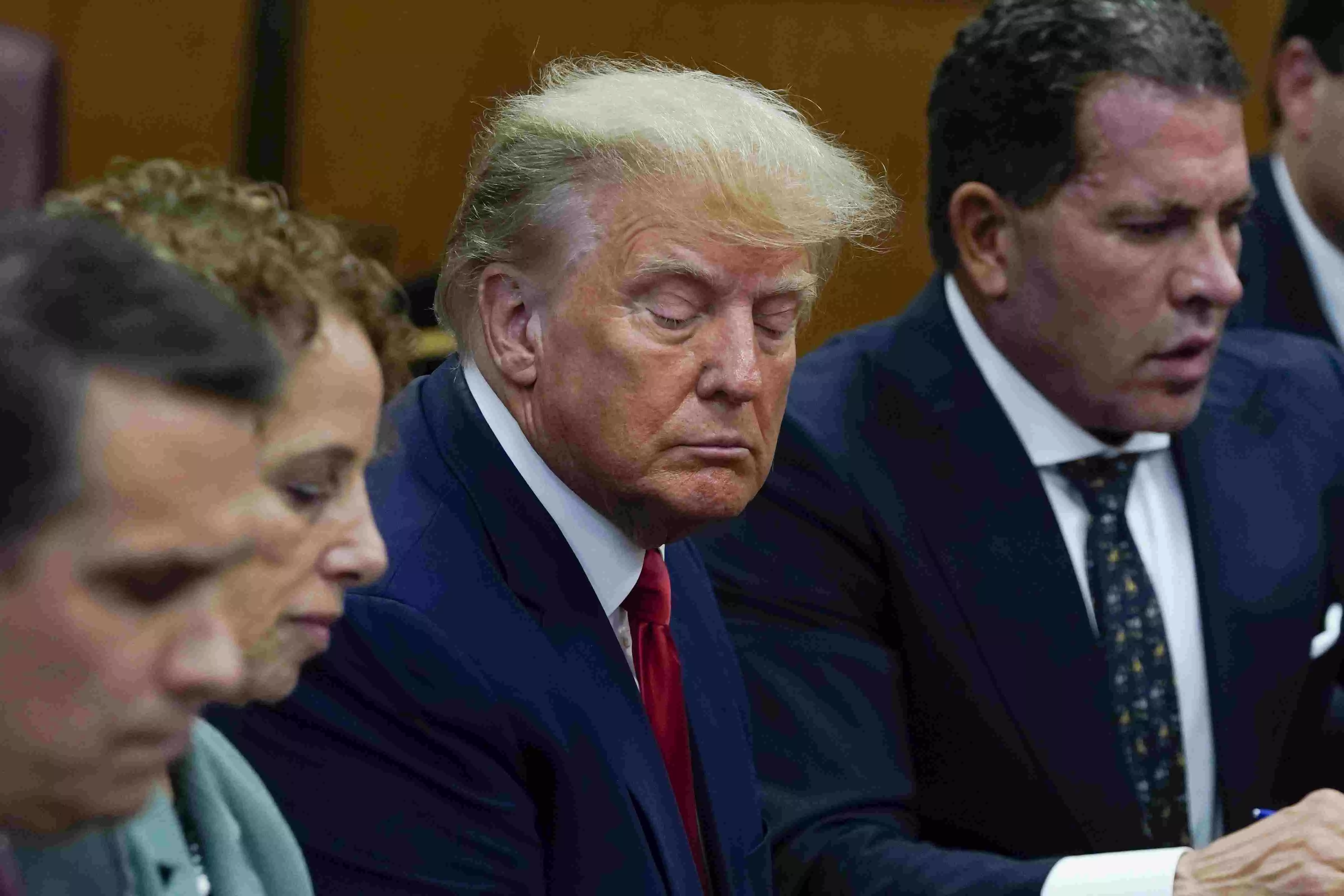In deep quagmire
With Republican leader Donald Trump facing ‘serious trouble’ on account of multiple criminal charges, the political prospects in the US linger in a realm of uncertainty

Donald Trump has become the first former US president to appear in court facing criminal charges. He was charged with 34 counts of falsifying business records and pleaded not guilty to all of the charges. Later, he told his supporters gathered at his Florida home, "the US is going to hell", and that "the only crime that I have committed is to fearlessly defend our nation from those who seek to destroy it".
The 'People of New York vs Donald Trump' may well become the trial of the century. Therefore, it is important, first and foremost, to understand the legal aspects of this matter. Donald Trump faces 34 felony charges of falsifying business records. Each of the charges carries a maximum of four years in prison, although a judge could sentence Trump to probation if he is convicted.
The charges against Trump relate to a USD 130,000 hush-money payment by lawyer Michael Cohen to the porn film star Stormy Daniels just before the 2016 elections to prevent her from talking about her allegations that she had an affair with Trump in 2007. The case against Trump hinges on how Cohen was compensated for those hush-money payments.
In 2017, after becoming president, Trump met with Cohen in the White House. Shortly thereafter — and over the course of 10 months — Trump began sending cheques from a trust handling his assets, and later from his own bank account, to Cohen. Those cheques were registered as ‘legal fees’, but Cohen has testified they were, in fact, reimbursements for the hush-money payment.
While hush-money payments are not by themselves illegal, spending money to help a presidential campaign but not disclosing it violates the federal campaign finance law. The prosecution alleges that Trump falsified the true nature of the payments because those payments were made in support of a crime.
Cohen was convicted for not disclosing his payment to Stormy Daniels. By reimbursing Cohen for that payment, the prosecution asserts, Trump is tied to that criminal act — and it makes his falsification of business records a more serious offence. Trump's defenders argue that this is a politically-motivated prosecution.
Even if Trump and his supporters challenge the strength of the case, the fact remains that he faces other legal problems as well. A high-level probe into him keeping top-secret White House documents at his private Florida residence is reportedly gathering pace. Another criminal probe is underway in Georgia over his efforts to overturn the 2020 elections, which he lost to Biden but refused to concede.
The arraignment of Donald Trump appears to have deepened the political divide in the United States. Many Republican lawmakers have rallied behind him, alleging this was nothing but ‘political prosecution’, while the Democrats are asserting that there is enough evidence to put him on trial. Thus, there is unlikely to be much meeting ground between the Republicans and Democrats in the months ahead, leading up to next year's presidential elections.
There is no doubt that Trump is in fairly serious trouble. However, in the past, he had displayed an ability to wriggle out of legal problems, whether during his many business disputes or even as president when Republicans acquitted him in two impeachment trials. It is clear that Trump's legal team would evaluate all legal options and pursue each one most vigorously to challenge the charges against him.
Lawyers for Trump are saying that the case against him is ‘ripe for motions’. Under US law, motions are requests for the court to decide on a matter relating to a case before a trial begins. If a party makes ‘a motion to dismiss’, it is asking the court to dismiss all or part of a case. Defence lawyers generally have 45 days after arraignment to make their motions, although the Judge may grant them a little more time.
Trump's legal team has floated the possibility of 'a motion to transfer venue' — moving the trial from Manhattan to nearby Staten Island. Trump himself wrote on social media that Manhattan “with some areas that voted 1 per cent Republicans" is a "very unfair" place for him to face a trial. However, according to most legal analysts, the motion to transfer the venue may not be granted.
Trump's lawyers may also seek to have another judge hear the case instead of Judge Merchant, who, Trump recently said, "hates" him and who presided over the tax-fraud trial that led to the conviction of the Trump Organisation's CFO. Again, this attempt is unlikely to succeed.
The possibility of Trump being found guilty is strong. Trump's trial could begin as early as January 2024, which means that he could be back in court just as primaries begin to select the Republican party's nominee for the presidential election. However, as Joshua Ritter, a former Los Angeles County prosecutor, has put it, "You're going to see challenges to everything, every step of the way." By putting up these challenges, Trump's team will try to slow down the legal process so that it does not come in the way of Trump's bid to seek the Republican party's nomination. Thus, the case is ushering the US into a difficult and uncertain phase.
Views expressed are personal




